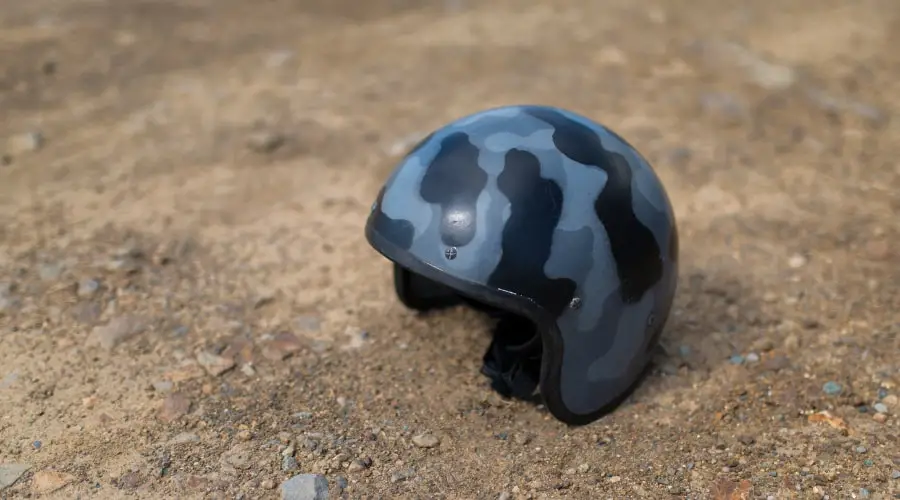When we think of the military or law enforcement, we often picture soldiers or police officers wearing bulletproof vests to protect themselves from harm. However, have you ever wondered if there are such things as bulletproof helmets? In this article, we will explore the do Bulletproof Helmets Exist
Bulletproof helmets are designed to protect the head from bullets and shrapnel. They are an essential piece of protective gear for law enforcement, military personnel, and anyone else who may find themselves in a dangerous situation. But do bulletproof helmets really exist? The answer is yes, and in this article, we will dive deeper into the topic.
Understanding Bulletproof Helmets
Bulletproof helmets are made with the same purpose as bulletproof vests: to protect the wearer from bullets. They are designed to absorb and disperse the energy from a bullet, reducing the impact on the head. However, unlike vests, bulletproof helmets are not as commonly used, which has led to some confusion and skepticism about their effectiveness.
Types of Bulletproof Helmets
Bulletproof helmets are classified into different levels, depending on their ability to withstand bullets. Here are the five levels of bulletproof helmets:
Level I
Level I bulletproof helmets are the most basic and offer the least amount of protection. They can withstand small arms fire, such as .22 caliber rounds, but are not recommended for high-velocity rounds.
Level II
Level II bulletproof helmets offer slightly more protection than Level I helmets. They can withstand small arms fire, such as 9mm and .357 magnum rounds, but are still not recommended for high-velocity rounds.
Level IIIA
Level IIIA bulletproof helmets are the most commonly used helmets by law enforcement and military personnel. They can withstand most handgun rounds, including .44 magnum and .357 SIG, as well as some shotgun rounds.
Level III
Level III bulletproof helmets offer more protection than Level IIIA helmets. They can withstand rifle rounds, such as 7.62mm NATO and .308 Winchester, but not armor-piercing rounds.
Level IV
Level IV bulletproof helmets offer the highest level of protection. They can withstand armor-piercing rifle rounds, such as .30-06 M2AP and .300 Win Mag, as well as multiple hits from lesser rounds.

Materials Used in Bulletproof Helmets
Bulletproof helmets are made with a variety of materials, each with its own strengths and weaknesses. Here are some of the most common materials used in bulletproof helmets:
Kevlar
Kevlar is a synthetic fiber that is five times stronger than steel. It is commonly used in bulletproof vests and helmets because of its high strength-to-weight ratio.
Polyethylene
Polyethylene is a thermoplastic material that is lightweight and flexible. It is commonly used in Level IIIA helmets because it absorbs energy from bullets.
Steel
Steel is a heavy and durable material that is commonly used in Level III and Level IV helmets. It offers excellent protection against high-velocity rounds but can be heavy and uncomfortable to wear for extended periods.
Ceramic
Ceramic materials are also commonly used in bulletproof helmets because of their ability to absorb and disperse energy from bullets. They are lightweight and offer excellent protection against high-velocity rounds.
Limitations of Bulletproof Helmets
While bulletproof helmets are designed to protect the head from bullets, they do have some limitations. One of the biggest limitations is that they do not provide full head and neck coverage, leaving those areas vulnerable to injury. Additionally, they can be heavy and uncomfortable to wear for extended periods, which can impact mobility and effectiveness in combat situations.
The Cost of Bulletproof Helmets
Bulletproof helmets can be expensive, with prices ranging from a few hundred dollars to thousands of dollars. The cost varies depending on the level of protection, materials used, and the manufacturer. This high cost can make it difficult for individuals or smaller organizations to purchase and provide bulletproof helmets for their personnel.
Alternatives to Bulletproof Helmets
Other protective gear options are available for individuals or organizations who cannot afford bulletproof helmets or want to explore alternative options. These include ballistic face shields, full-body armor, and riot gear. While they may not provide the same level of protection as bulletproof helmets, they can still offer valuable protection in dangerous situations.
Related: What Helmet is Bulletproof?
FAQs:
How effective are bulletproof helmets?
Bulletproof helmets can offer protection against different levels of bullets, depending on their level and the materials used. However, they have limitations and do not provide full head and neck coverage.
How long do bulletproof helmets last?
The lifespan of a bulletproof helmet varies depending on the manufacturer and the materials used. Replacing the helmet after any significant impact or after the manufacturer’s recommended lifespan is recommended.
Can bulletproof helmets stop armor-piercing rounds?
Level IV bulletproof helmets can withstand armor-piercing rifle rounds, but not all bulletproof helmets can offer protection against them.
Are bulletproof helmets heavy?
Bulletproof helmets can be heavy, especially those made with materials such as steel. However, newer materials such as Kevlar and polyethylene are lighter and more comfortable to wear.
Can anyone purchase a bulletproof helmet?
Bulletproof helmets are regulated items and may require a license or permit to purchase. It is essential to check with local laws and regulations before purchasing one.
Conclusion
Bulletproof helmets exist and are essential protective gear for law enforcement, military personnel, and others who may find themselves in dangerous situations. However, they do have some limitations, and the high cost can make it challenging for smaller organizations or individuals to obtain them.
Nonetheless, the various materials used in bulletproof helmets, such as Kevlar, polyethylene, steel, and ceramic, offer excellent protection against different levels of bullets.
Helmetslab is a website that focuses on providing in-depth reviews and information about different types of helmets, including motorcycle helmets and others helmets. I am writing a post with proper research on the info that helps helmet users.

